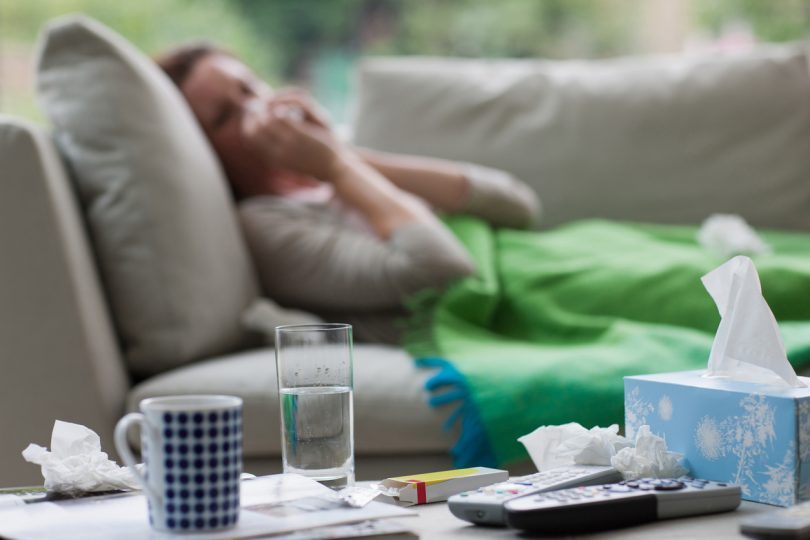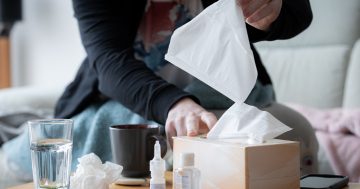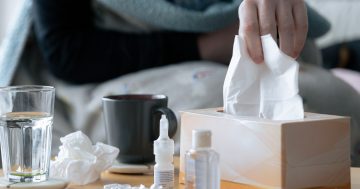
A flu vaccine can help people avoid getting sick this winter. Photo: File.
The days are shorter, nights are cooler and that can mean only one thing – flu season is just around the corner.
While it’s more famous cousin, COVID, often gets more attention, the flu can be just as debilitating, especially for people with weaker immune systems, such as babies and the elderly.
NSW Health has rolled out its flu vaccination program early this year and vaccines should be available at every pharmacy and GP before the end of April.
Director of Infectious Diseases for the Illawarra-Shoalhaven Local Health District Spiros Miyakis said the best time to get vaccinated was now.
“Flu used to have a big peak in July or August before going down, but since COVID we have seen more prolonged waves of flu,” he said.
“NSW Health monitors the situation week by week and we are already seeing case numbers a bit higher than this time last year.
“It’s likely to be around all winter, so it’s best to be prepared early.”
Countries in the Northern Hemisphere had a particularly severe strain of flu during the winter just past.
Spiros said regardless of how severe the current strain of flu was, it was worth taking precautions.
He said it didn’t need to be a bad year for flu to have devastating consequences.
“We can’t be complacent, because it’s unpredictable for individuals,” he said.
“There are severe consequences, including death, and people who are at higher risk can contract a severe case of flu in a year where flu activity is normal.
“Getting vaccinated is the best way to protect yourself, your loved ones, and the wider community.”
Spiros said those particularly at risk of severe illness were eligible for a free vaccination.
This includes those over the age of 65, children between the ages of six months and five years, pregnant women, Aboriginal people of any age over six months and anyone with a chronic health condition such as diabetes, heart disease, cancer, lung disease, kidney disease or poor immune function.
To get vaccinated you can talk to your GP, or book in with your local pharmacy.
If you have questions about what vaccine is most appropriate for you, or you have very young children, make an appointment with your GP to discuss the best approach.

















